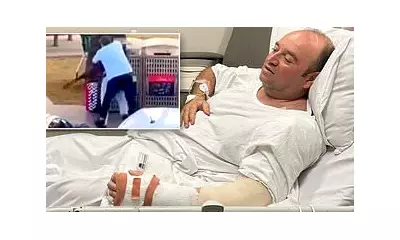
In a remarkable display of modern forensic science, Miami-Dade Police have successfully closed a murder case that had remained unsolved for nearly four decades. The breakthrough came through cutting-edge genetic genealogy technology that finally identified the perpetrator of a 1984 homicide.
The Cold Case Breakthrough
Investigators announced they had definitively solved the murder of a woman whose case had grown cold over 40 years. Using advanced DNA analysis techniques that weren't available when the crime originally occurred, detectives were able to identify the suspect through familial DNA matching.
The revolutionary technique involves comparing crime scene DNA with commercial genetic databases to find relatives of potential suspects, then building family trees to narrow down the identification process.
How Genetic Genealogy Transformed the Investigation
This case represents another victory for forensic genetic genealogy, which has revolutionised cold case investigations across the United States. The technology has become an indispensable tool for law enforcement agencies struggling with decades-old unsolved crimes.
"This technology has fundamentally changed how we approach cold cases," explained a law enforcement representative. "Where traditional DNA methods hit dead ends, genetic genealogy opens new pathways to justice."
The Impact on Cold Case Units
- Dramatically increased solve rates for historical crimes
- Provided closure for families waiting decades for answers
- Enabled re-examination of evidence with new technological lenses
- Created new investigative protocols for DNA analysis
A New Era for Criminal Investigations
The successful resolution of this Miami case underscores the growing importance of scientific advancement in criminal justice. As genetic databases expand and technology improves, law enforcement officials anticipate many more cold cases will be solved in the coming years.
This particular investigation demonstrates how persistence combined with technological innovation can deliver justice even after the passage of multiple generations. The Miami-Dade Police Department's Cold Case Unit continues to review unsolved crimes with the hope that new technology will provide answers where previous methods failed.
While the suspect identified in this case is deceased and cannot face trial, the resolution provides crucial closure to the victim's family and demonstrates law enforcement's commitment to pursuing justice regardless of how much time has passed.





